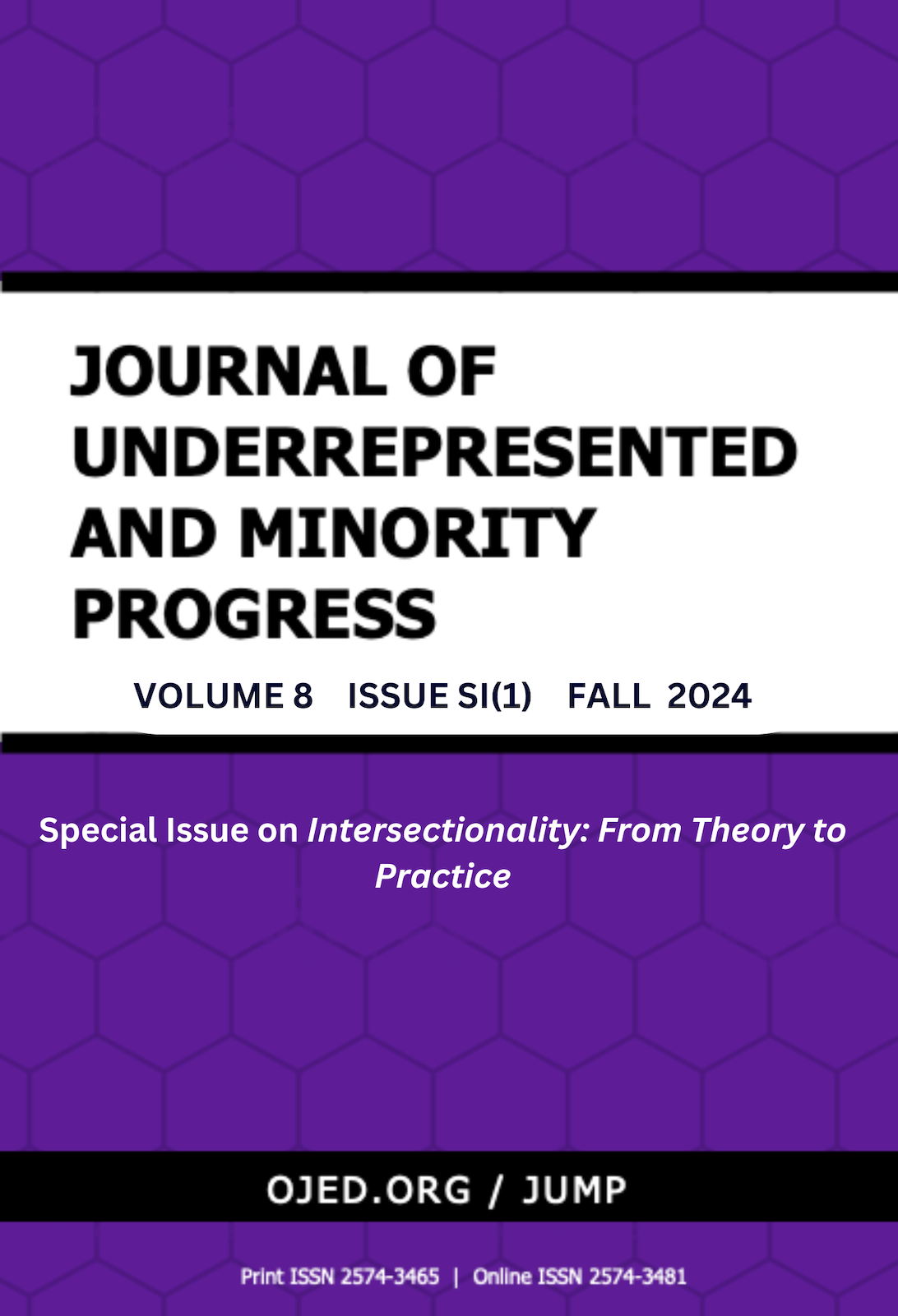Special Issue Editorial
Intersectionality: From Theory to Practice
DOI:
https://doi.org/10.32674/eddpxq53Keywords:
editorial, intersectionality, reflexive, critique, peer review, academiaAbstract
Our goal for this special issue was to expand and deepen the understanding and application of the concept of intersectionality, recognizing its untapped potential. We invited open contributions from diverse academic and practitioner viewpoints, encouraging submissions from both the Global South and North. We aimed to explore various interpretations of intersectionality’s value across multiple contexts and disciplines. Using Collins and Bilge’s (2016) framework, we conceptualized intersectionality as a theoretical lens, analytical strategy, and form of praxis throughout our editorial process. We embraced these dimensions organically while maintaining sensitivity in our double-anonymous review. By sharing these insights, we reflect on our own (un)learning and its application to our academic practices. This editorial also serves as an introduction to the articles featured in this special issue, advancing the scholarly discourse on intersectionality and promoting ongoing dialogue in future research and practice.
References
Agunsoye, A. (2020, June 12). Is career mentoring a panacea for gender inequality? The London School of Economics and Political Science. https://blogs.lse.ac.uk/highereducation/2020/06/12/is-career-mentoring-a-panacea-for-gender-inequality
Al-Faham, H., Davis, A. M., & Ernst, R. (2019). Intersectionality: From theory to practice. Annual Review of Law and Social Science, 15(1), 247–265. https://doi.org/10.1146/annurev-lawsocsci-101518-042942
Biesta, G., Takayama, K., Kettle, M., & Heimans, S. (2024). How ‘academic’ should academic writing be? Or: why form should follow function. Asia-Pacific Journal of Teacher Education, 52(2), 121–125. https://doi.org/10.1080/1359866X.2024.2324582
Collins, P. H., & Bilge, S. (2016). Intersectionality. Polity Press.
Crenshaw, K. W. (1995). Mapping the margins: Intersectionality, identity politics, and violence against. In K. Crenshaw, N. Gotanda, G, Peller, & K. Thomas (Eds.), Critical race theory: The key writings that formed the movement, (pp. 57–383). New Press.
Ferree, M. M. (2018). Intersectionality as theory and practice. Contemporary Sociology: A Journal of Reviews, 47(2), 127–132. https://journals.sagepub.com/doi/10.1177/0094306118755390
Hancock, A. M. (2007). Intersectionality as a normative and empirical paradigm. Politics & Gender, 3(2), 248–254. https://doi.org/10.1017/S1743923X07000062
Hankivsky, O., & Jordan-Zachery, J. S. (Eds.). (2019). The Palgrave handbook of intersectionality in public policy. Palgrave Macmillan.
Institute of Education Sciences. (2018). Race/ethnicity of college faculty. National Center for Education Statistics. https://nces.ed.gov/fastfacts/display.asp?id=61
Nash, J. C. (2017). Intersectionality and its discontents. American Quarterly, 69(1), 117–129. https://muse.jhu.edu/article/652577
Salem, S. (2018). Intersectionality and its discontents: Intersectionality as traveling theory. European Journal of Women's Studies, 25(4), 403–418. https://doi.org/10.1177/1350506816643999


